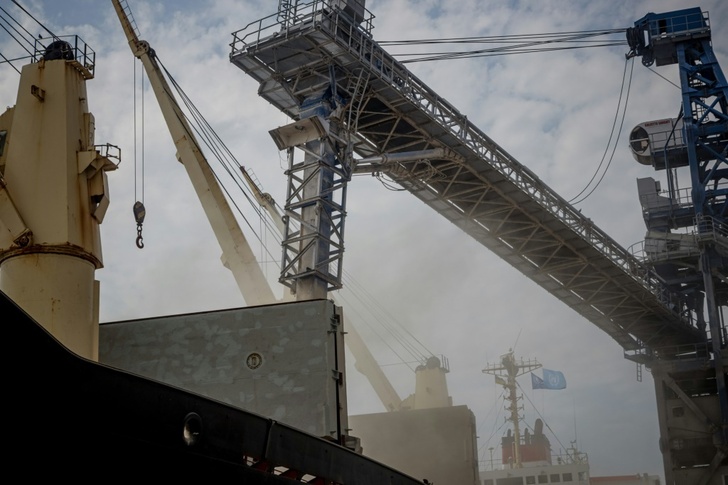Ukraine is on course to ship nearly as much grain this month as it did before the Russian invasion, in a triumph for international efforts to ease food shortages, a US official said Tuesday.
Ukraine is one of the world's largest exporters of wheat, corn, barley and sunflower oil, shipping around five million metric tons of grain each month before the war.
Its exports ground to a trickle after the February 24 invasion, contributing to a spike in global food prices that has hit poor nations especially hard.
"Thanks to intensive international cooperation, Ukraine is on track to export as much as four million metric tons of agricultural products in August," a senior US State Department official told AFP.
Ukraine and Russia in July reached a first wartime agreement through the mediation of Turkey and UN Secretary-General Antonio Guterres, with guarantees for ships to sail out of Ukraine's Black Sea ports.
The State Department official said that the efforts have moved out more than 720,000 tons of grain from the ports through 33 ships over the past several weeks.
More significant so far has been a European initiative to ship Ukrainian grain by river, rail and road routes.
The so-called "Solidarity Lanes" established by the European Union rushed additional vehicles including trucks to the border, addressing hurdles including Ukrainian wagons' incompatibility with European rail gauges.
The European effort is shipping 2.5-3 million tons of produce into the European Union and beyond to international markets each month, the official said.
As part of the agreement negotiated in Istanbul, Russia will also be guaranteed shipment of food and fertilizer without being subject to sanctions.
Guterres recently appealed for "unimpeded access," saying that the world could face dangerous agricultural shortfalls next year unless Russian fertilizer reaches international markets.
The United States says that its sweeping sanctions on Russia over the Ukraine war have exempted agricultural products and accuses Moscow of seeking to distract the world from its own responsibility for shortages.
Last week the United States said it was contributing another $68 million to the World Food Programme to buy 150,000 metric tons of Ukrainian wheat to address food insecurity.
The UN agency warned on Friday that some 22 million people face starvation in Horn of Africa countries where the rising costs of imported food have exacerbated the effects of climate change.
Kenya, Ethiopia and Somalia have suffered the unprecedented failure of four straight rainy seasons.
sct/jh
© Agence France-Presse
Your content is great. However, if any of the content contained herein violates any rights of yours, including those of copyright, please contact us immediately by e-mail at media[@]kissrpr.com.
Source: Story.KISSPR.com

